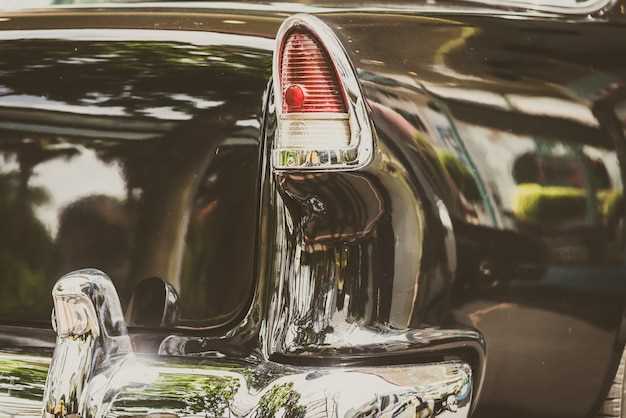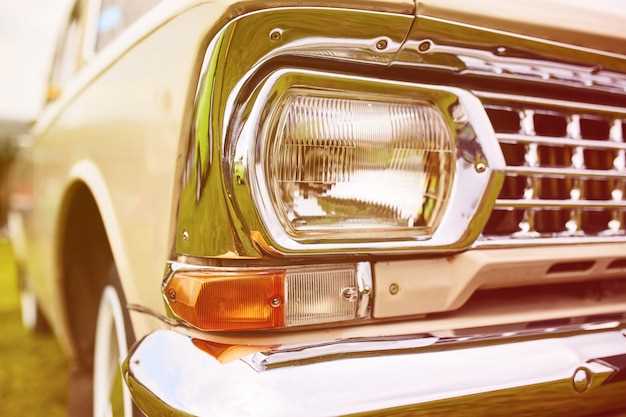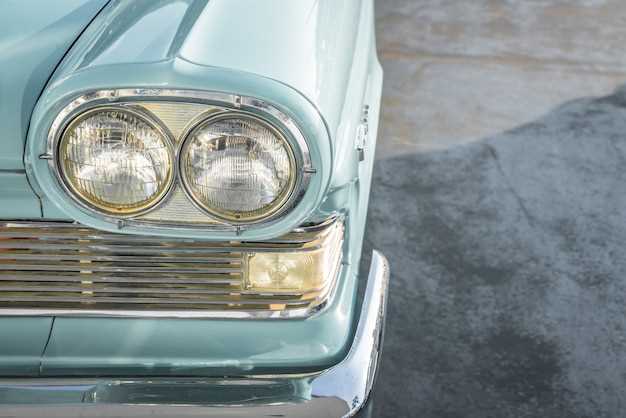
Determining the right time for a classic car reappraisal is crucial for enthusiasts and investors alike. Reappraisal refers to the process of reassessing the value of your classic vehicle based on various factors, including market trends, condition, and provenance. By regularly checking the value of your classic car, you can ensure that you are adequately protected and informed about its financial worth.
One of the essential aspects of the reappraisal process is understanding when to initiate it. Timing can dramatically influence the outcome, whether you are contemplating selling, insuring, or simply keeping your investment updated. It is vital to stay aware of market fluctuations and potential events that could impact classic car valuations, such as auctions or vintage car shows. Performing a check on the market data before deciding to appraise can yield significant benefits.
In this guide, we will explore the key indicators and best practices for timing your classic car reappraisal. We will provide insights into how often you should consider reassessing your vehicle, specific market conditions to monitor, and tips for ensuring a smooth and accurate appraisal process. Understanding these elements will empower you to make informed decisions regarding your prized classic car.
When to Schedule Your Classic Car Reappraisal
Timely reappraisal of your classic car is essential for ensuring that its value accurately reflects current market conditions. Regularly checking the value of your vehicle can help you make informed decisions regarding insurance coverage, potential sales, or restorations. It is advisable to schedule a reappraisal under several circumstances.
First, consider reassessing your classic car’s value if you’ve made significant modifications or restorations. Upgrades can enhance performance or aesthetics and could positively impact the car’s value. Scheduling a reappraisal after such changes ensures that your insurance policy covers the car for its new worth.
Another key time to check your vehicle’s value is if there have been fluctuations in the classic car market. Economic changes, trends in collector interests, and auction results can all influence vehicle valuations. Staying informed about these factors will help you determine the best time for a reappraisal.
Annual check-ins are also recommended, especially if you are involved in the classic car community. Networking with other owners can provide insights into value changes within specific makes and models. If you notice a general trend of increasing values during such discussions, it may be wise to schedule a reappraisal.
Lastly, if you plan to sell or insure your classic car, obtaining an up-to-date appraisal is crucial. This ensures that you receive a fair price or adequate insurance coverage based on its current value. In summary, proactively scheduling reappraisals based on modifications, market changes, community insights, and sales plans will help maintain appropriate valuation for your classic car.
Key Factors Impacting Your Car’s Value Assessment

When conducting a reappraisal of your classic car, several critical factors influence its overall value. Understanding these elements can help you achieve a more accurate assessment and ensure that you are making informed decisions regarding any potential sale or insurance adjustments.
One of the primary factors affecting value is the car’s condition. This encompasses the mechanical aspects, bodywork, and interior quality. Classic cars in excellent condition typically command higher prices, while those needing significant repairs or restoration may see a decrease in value.
Another important aspect is the vehicle’s rarity. Limited production models or those with unique features often attract collectors, resulting in a higher market value. The historical significance of a car, including its role in automotive history or pop culture, can also enhance its desirability and, consequently, its appraisal value.
Documentation plays a vital role in value assessment. A well-documented history that includes maintenance records, original purchase documents, and any previous appraisals can positively impact the car’s worth. This evidence assures potential buyers of the car’s authenticity and care over the years.
Market trends are also crucial in determining value. The popularity of specific makes, models, and styles can fluctuate, often influenced by automotive shows, auctions, or media coverage. Staying informed about current market conditions can help you time your reappraisal effectively.
Lastly, modifications made to the car can either enhance or detract from its value. While some upgrades might appeal to buyers, others, such as non-original parts or drastic changes in design, can lower the car’s value. It is important to consider how these modifications align with the preferences of collectors and enthusiasts when reevaluating your vehicle.
How to Prepare for a Value Check and What to Expect

Preparing for a classic car value check involves several key steps to ensure an accurate reappraisal. Understanding the process will help you set realistic expectations.
Here’s how to prepare for a value check:
- Gather Documentation: Collect all relevant documents related to your classic car, including:
- Original purchase receipt
- Service history records
- Restoration details
- Previous appraisal reports
- Photographs of the vehicle
- Prepare the Vehicle: Ensure your car is in the best possible condition before the reappraisal. Consider the following:
- Conduct a thorough cleaning (interior and exterior)
- Perform maintenance checks (fluids, brakes, tires)
- Address minor repairs that could affect value
- Market Research: Research your specific make and model to gauge current market trends. Look for:
- Recent sale prices of similar models
- Industry reports and publications
- Online auction results
What to expect during the value check:
- Inspection by an Appraiser: A professional will evaluate your car’s condition, authenticity, and overall value. Be prepared to answer questions regarding modifications and history.
- Comparative Analysis: The appraiser will compare your vehicle with recent sales and market data. Expect them to use various parameters to determine value.
- Final Report: You will receive a written report detailing the findings, including the appraiser’s assessment and recommended value. This document can help in future transactions or insurance purposes.
By following these steps, you can ensure a thorough and accurate value check for your classic car, ultimately assisting you in understanding its current worth.


